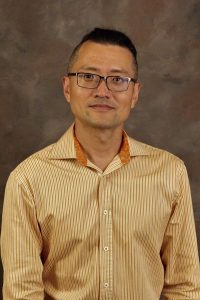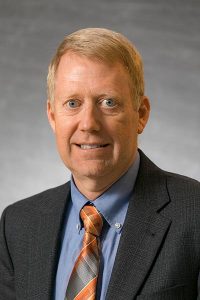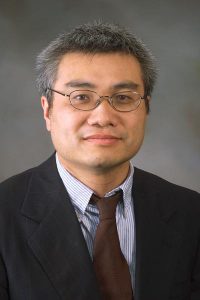As transportation increasingly relies on electric-based systems, a challenge arises in what to do with batteries from electric vehicles (EVs) as they age. One solution is to offer them a second life once they retire from the road.
The team of Kevin Bai, Leon Tolbert, and Fred Wang in the Department of Electrical Engineering and Computer Science (EECS), are working with the Volkswagen Group of America in Chattanooga to apply second-life batteries (SLBs) from EVs to power grids—an approach that would reduce cost of both EVs and energy storage systems (ESSs).

Kevin Bai

Leon Tolbert

Fred Wang
“By 2030, it is estimated that more than 6 million EV battery packs will be retired,” said Bai. “However, such a battery still has 70%–80% storage capacity left. While this might not be suitable for EV application, it can be used for grid energy storage and offer numerous grid services, such as peak shaving, reactive power compensation, and black start.”
The proposed EV SLB project would model the EV battery degradation in grid-connected applications, integrate the battery to the power grid through power electronics converters, and monitor the battery state of charge and state of health. The success of the project would help guide the industry in the proper sizing of the battery energy storage system, reduce battery recycling costs, and enhance the power grid resiliency.
“When a power outage happens, the SLB-enabled power electronics systems can form the local grid, thereby providing enough power for residences, buildings, and industry plants,” said Bai. “Even just considering the normal operation time, the SLB can absorb the excessive power on power grids during the off-peak hours and release it back during the peak time, which significantly reduces the burden of the power grid thereby avoiding costly infrastructure renovation.”
Bai, an associate professor in EECS, will work with co-PIs Tolbert, Chancellor’s Professor and interim EECS department head, and Wang, EECS Professor and Condra Chair of Excellence in Power Electronics, to organize a team of UT Knoxville graduate students to further project development. The project has multiple phases—currently entering its second phase.
“Our power electronics group has been working with VW Group of America since 2020,” said Bai. “The research spectrum has been extended from the traditional power electronics development such as power module and EV chargers to power grid and energy storage.”
This team effort exemplifies the way Volunteer collaboration brings practical solutions to satisfy questions across multiple applications.
Contact
Randall Brown, (865-974-0533, rbrown73@utk.edu)